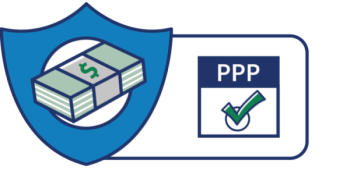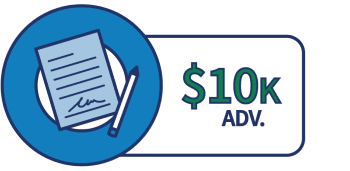Help From The Hill
The coronavirus pandemic has quickly changed life around the world, impacting individuals, families, and businesses. The Coronavirus Aid, Relief, and Economic Security (CARES) Act was passed on March 25, 2020, bringing financial support to individuals and small businesses. The $2.2 trillion bill is the largest to ever be passed.
The CARES Act can help you, your family, and your business navigate through the unexpected slowdown sparked by the coronavirus pandemic. A general outline of the two types of relief for small businesses is provided below. It’s important to point out that these opportunities and options are changing daily so what was true a week ago isn’t necessarily true today. A link to helpful SBA and Treasury resources have also been provided. These websites highlight all the Corona Relief options and will keep you informed of any updates to the program.
Whether it’s for you, a family member, an employee or a client, the information below will help you become familiar with the current options available. Remember to routinely check for updates because what we learn today could all change tomorrow.
SBA Coronavirus Relief Options
Small Business Guidance and Resources
Treasury Department CARES Act Resources



The Paycheck Protection Program or PPP
The PPP is an expansion of the existing SBA Section 7(a) loan program, authorized by the recently passed CARES Act. It provides small businesses with funds to pay up to 8 weeks of payroll costs, including benefits. Funds can also be used to pay interest on mortgages, rent and utilities.
Eligibility
Small businesses with 500 or fewer employees, including non-profits, veteran’s organizations, tribal concerns, self-employed individuals, sole proprietorships and independent contractors are eligible. Businesses with over 500 employees may also be eligible in certain industries, such as food.
Aid Availability
Small businesses will be able to borrow 250% of their average monthly payroll expenses during 12 months prior to the loan application with a cap of $10 million. Salaries are capped at $100,000 per employee. Employees living outside the US will not be included in payroll nor will Sick and Family Leave wages for which a credit is being provided by the Families First Coronavirus Response Act.
Fully Forgiven
The PPP loans will be fully forgiven when used for payroll costs, interest on mortgages, rent and utilities. However, due to the likely high subscription, at least 75% of the forgiven amount must have been used for payroll. Loan amounts will be deferred for six (6) months. No collateral or personal guarantees are required. Neither the government nor the lenders will charge small businesses any fees. The forgiveness of the loan is based on the employer maintaining or quickly rehiring employees and maintaining salary levels. Forgiveness will be reduced if full-time employment headcount declines or if salaries or wages decrease. Forgiven loans or any portion will not be considered taxable income. Deferred interest may be payable if forgiveness is less than 100%. Any non-forgiven amounts are subject to the terms negotiated by the small business and the lender, but with a maximum term of 10 years and 4% interest.
When To Apply
Starting April 3, 2020, small businesses and sole proprietors can apply. April 10, 2020, independent contractors and self-employed individuals can apply.
How To Apply
PPP loans go through and are approved by a third-party lender. You can apply through any existing SBA 7(a) lender or through any FDIC, federally insured credit union and Farm Credit System institutions that participate in SBA 7(a) loans.
The Act allocates $350 billion for small business relief during this pandemic and there is no guarantee additional funding will be available. If your business has been adversely affected, we recommend you apply as soon as possible.
Economic Injury Disaster Loans (EIDLs)
Authorized under Section 7(a) of the Small Business Act (SBA), the Economic Injury Disaster Loans are traditionally low-interest loans available to small businesses following disaster declaration. EIDLs are typically made on a local level following natural disasters such as hurricanes, tornadoes or floods. The CARES Act has included areas affected by COVID-19 pandemic. Currently, each loan provides up to $2 million to pay fixed debts, payroll, accounts payable and other bills. The interest rate is 2.75% and 3.75%, respectively, for non-profits and for-profit small businesses and repaid up to a 30-year period. The Act also provides for advances of up to $10,000 for EIDLs for small businesses experiencing a temporary loss of revenue. The $10,000 advances are eligible for forgiveness if used for paid leave, maintaining payroll, mortgage/rent payments, repaying debt obligations they are unable to pay due to revenue loss, and increased costs due to supply chain disruptions.
Small business owners can apply directly for an EIDL at the Disaster Loan Assistance Office of the SBA online


